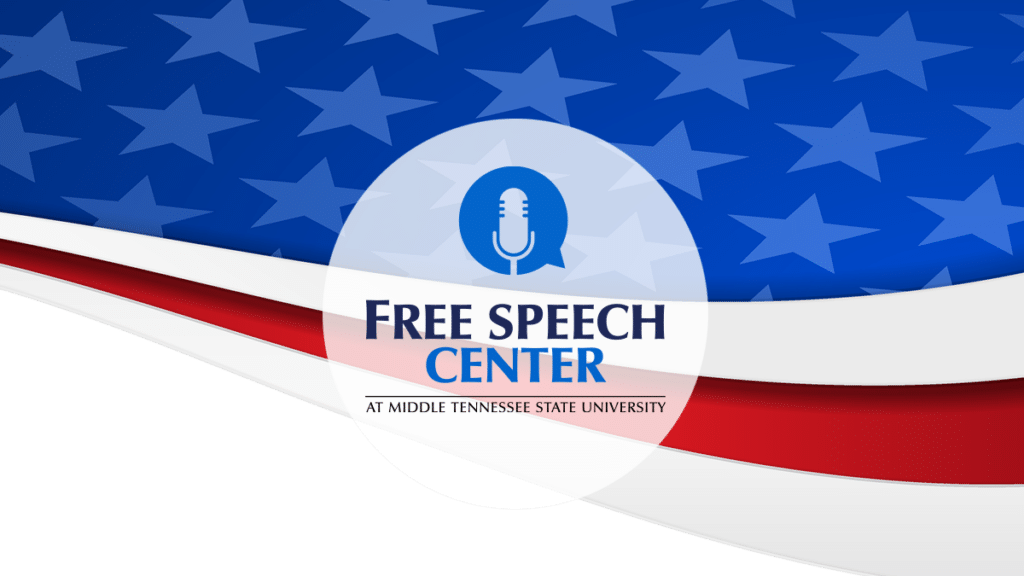
Congress shall make no law respecting an establishment of religion, or prohibiting the free exercise thereof; or abridging the freedom of speech, or of the press; or the right of the people peaceably to assemble, and to petition the Government for a redress of grievances.” – The First Amendment to the U.S. Constitution

Written by Ken Paulson, director of the Free Speech Center
What does the First Amendment say about freedom of speech? Can speech be restricted, and if so, when? In this overview, a First Amendment scholar explains what sorts of speech are protected, where free expression may be limited, and why “[f]reedom of speech is a core American belief, almost a kind of secular religious tenet, an article of constitutional faith.”
How did freedom of the press come about? Are there restrictions on press freedom? The ways in which this core freedom has developed in law are explained in this overview by a First Amendment scholar. In quotations from one court ruling, “‘[F]reedom of expression upon public questions is secured by the First Amendment’” so that “‘debate on public issues should be uninhibited, robust and wide-open.’”
The First Amendment introduced bold new ideas to the world: that government must not impose a state religion on the public, or place undue restrictions on religious practice, but must recognize the right of the people to believe and worship, or not, as their conscience dictates. This First Amendment scholar’s overview makes clear the many aspects of our religious freedom, saying, “That bold constitutional experiment in granting religious freedom to all remains in place, and in progress, in the United States.”
Our right to gather in peaceful public protest – in marches, rallies and other assemblies – is another core freedom guaranteed by the First Amendment. As a First Amendment scholar says in this overview, “First Amendment freedoms ring hollow if government officials can repress expression that they fear will create a disturbance or offend. Unless there is real danger of imminent harm, assembly rights must be respected.”
This least-known First Amendment freedom is nevertheless crucial to our democratic republic’s form of government. “Petition is the right to ask government at any level to right a wrong or correct a problem,” writes a First Amendment scholar in this overview detailing how the right of petition works in our government, and the forms it takes.
A searchable encyclopedia with more than 1,700 articles on the First Amendment, ranging from case summaries and topical articles/
Trace the development of the principles leading to the adoption of the First Amendment, and developments in First Amendment jurisprudence through the years.
A collection of educational resources and lesson plans created by prominent First Amendment organizations throughout the nation.
EXPLORE THE FIRST AMENDMENT ENCYCLOPEDIA